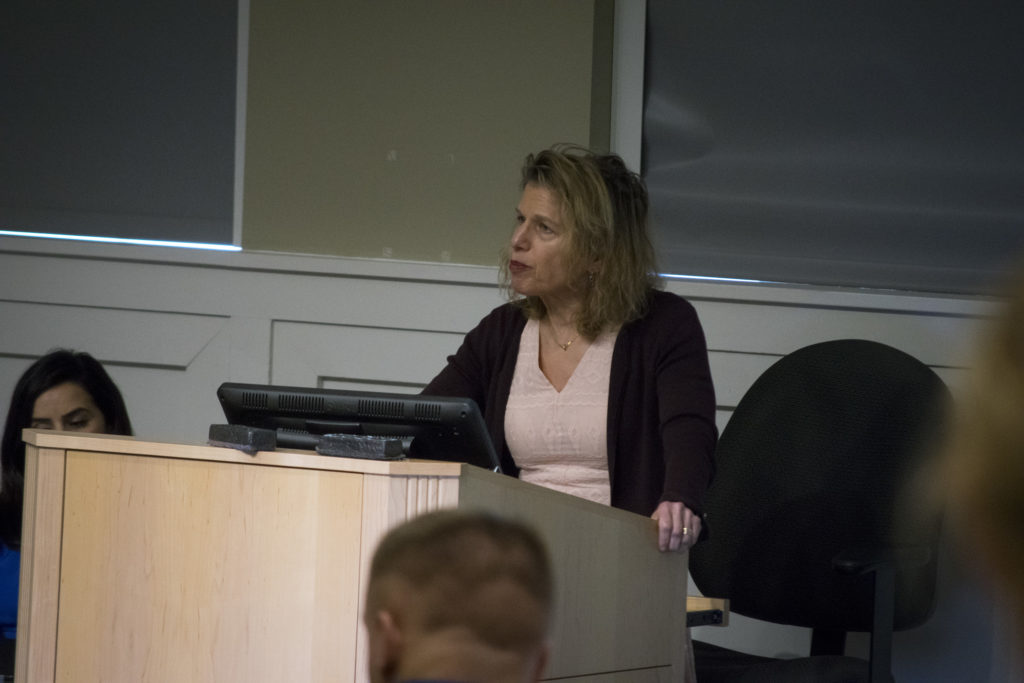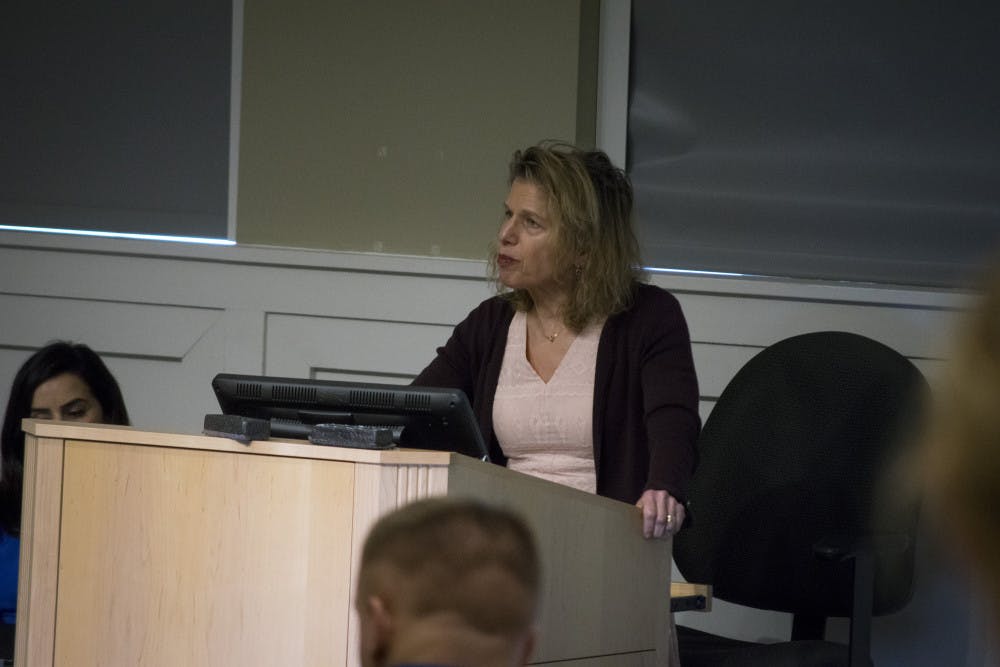By Jennifer Goetz
Staff Writer
Amnesty International hosted a Syrian Refugee Crisis Lecture on Wednesday, April 12, in which three College professors presented different aspects of the Syrian refugee crisis. The audience learned about the origin of the Syrian civil war, the devastating health implications it has had on civilians and refugees, and why this human rights crisis needs to be addressed.
“This is the worst humanitarian disaster of our time (and) has caused untold suffering for Syrian men, women and children,” according to the United Nations.
As of March 2017, 5 million people have left Syria and there are 6.5 million Syrian citizens displaced, according to CNN.
Political science Professor Miriam Lowi, public health Professor Carolina Borges and religious studies Professor David Rech discussed this and presented the complicated and challenging aspects of this crisis.
Lowi talked about the conflict in depth and explained why citizens are fleeing Syria after a civil war that broke out in 2011.
In Syria, south of Daraa, middle school children wrote graffiti on the walls on March 2011, agreeing that President Bashar al-Assad’s regime needed to be stopped. The government response to this anti-regime act was extreme and violent, according to Lowi.

Peaceful demonstrators of multiple ethnicities protested between March and August 2011, Lowi said. Al-Assad’s regime sought to divide the populations “by planting fear” in different communities and making them suspicious of each other, according to Lowi.
This regime bought people off and released prisoners known for religious fanaticism to create chaos. The Free Syrian Army is a militia that wants to get rid of the regime and establish a democratic society, although this group struggled to find the support they needed from outside of the country.
Lowi also explained the difference between ISIS’s and the Syrian people’s goals: ISIS wants to unite all islamic countries into one while the Syrian citizens want the regime gone.
Another aspect of the Syrian refugee crisis is public health, according to Borges. Men, women and children are suffering in the middle of war-ravaged areas, and most refugees don’t have access to the basic necessities that they need to stay healthy.
“There’s no guarantee refugees will get access to health services they need,” Borges said.
As of 2015, there are 73 refugees registered in New Jersey out of a total of 1,682 refugees that came to the United States, according to the Refugee Processing Center, which is run by the U.S. Department of State’s Bureau of Population, Refugees and Migration.
Based on refugees that have come into America, health professionals saw what diseases and public health issues with which this population is dealing.
The most prominent health conditions afflicting Syrian refugees are anemia, diabetes, hypertension and mental illness, according to Borges. Refugees also face problems with primary health needs, immunizations, women’s health, mental health and communicable diseases like HIV, syphilis, tuberculosis and hepatitis B or C. Syrian citizens are more likely to develop diseases after living in harsh conditions and are often caught in the middle of traumatic situations that are not healthy for a person's mental state.
Rech focused on viewing the refugee crisis as a human rights issue that could happen anywhere. He questioned terminology of the “Syrian Refugee Crisis” and particularly thought the word “crisis” was not fitting, stressing that people go through little events that can be considered crises everyday, while what is happening to Syrian citizens is murder and injustice.
“Amnesty International is an apolitical organization dedicated to promoting human rights and that means that we have to promote awareness when human rights are being violated,” said Usha Trivedi, the current president of the College’s chapter of Amnesty. “I am so glad with the success of this panel, and I hope TCNJ Amnesty continues to host school-wide awareness-themed events in the future.”
After the panel, the professors and members of Amnesty gave students the opportunity to write letters to refugees offering support.
“The last part of our event was a letter writing campaign, where we wrote letters to our local representatives to urge for the voices of the refugees,” said Trivedi. “This is because activism directly comes from awareness."







